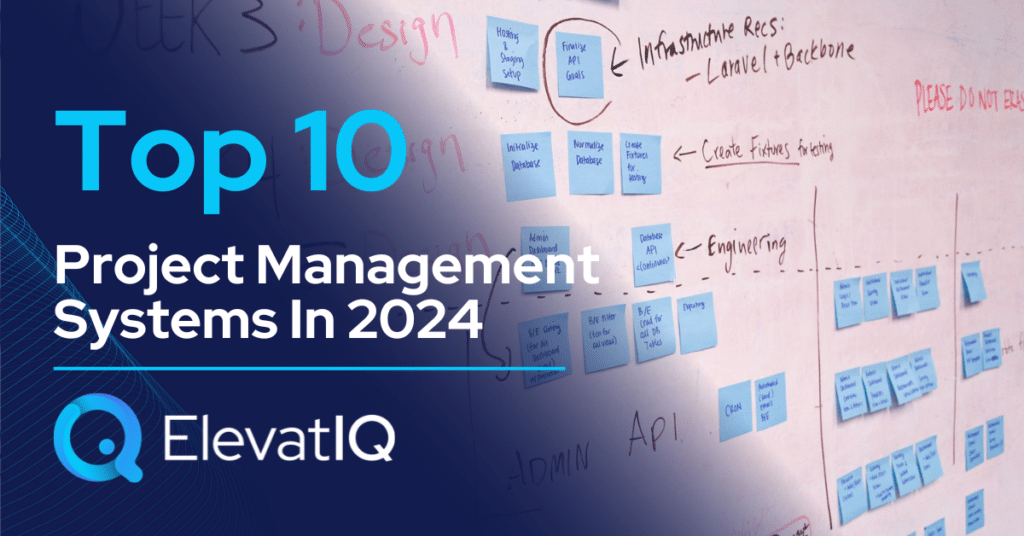“When is the right time to start a business?” A successful entrepreneur once said, “it is TODAY. “ They are spot on with their recommendation, as the aspiring entrepreneurs that procrastinate never end up starting one. We get similar questions from our prospects when it comes to ERP project planning. And like these smart and successful entrepreneurs, our answer always is the same, TODAY. Through this article, you will learn the value you can get by implementing an ERP sooner than later.

Let’s dig into the personas of these prospects a bit more. These prospects have a growing business with a proven product-market fit. As well as committed investors, and a sound belief in their business model. They understand the value of an ERP and appreciate the value automation brings to them. They also understand the costs associated and have no issues paying for them. The only barrier they have is: time.
Before you procrastinate on your decision to implement an ERP, you should be aware of the following issues. That you can expect with your business without an integrated ERP system. These are also management challenges that are harder to overcome later. By doing ERP project planning sooner, you can streamline the majority of your business processes from day one.

The 3Us of Business Processes: Unorganized, Undocumented, and Uncontrollable
Unorganized business processes
Everyone prefers doing things their way, and no one likes to be told how they should be doing their jobs. Our diverse backgrounds help with creativity and innovative ideas. Yet they are not as helpful in standardizing and harmonizing business processes. For example, the companies that don’t use an integrated ERP system, the teams would spend a significant amount of time debating how files and IDs should be named. How they would share among team members, and how they would structure BOMs.
Even after these debates, there will be chaos and confusion. While these debates may result in some improvements, the feeling of further refinement would still exist. They might bring industry experts who might spend countless hours bringing the best practices and spend tons of money on consulting fees. The ERP systems incorporate such best practices as part of their framework without the need for debates.
While the ERP systems provide flexibility on how you name your files or IDs, once you successfully do the ERP project planning, with the agreed operating framework, the governing structure is part of each workflow. These flows don’t require any manual intervention or assurance to ensure process compliance. ERP systems embed business rules as part of their implementation framework. The experience becomes so seamless that the collaboration would feel like a well-oiled machine.
Undocumented business processes
Companies that don’t use an integrated ERP never maintain comprehensive documentation about their business processes as it is nearly impossible to do because of maintenance efforts. The ad-hoc processes with no common consensus cause significant variations among users in how they understand each process. They are also likely to vary as employees leave the organization and new employees join.
The undocumented nature of business processes causes significant issues during ERP implementation. Most users struggle to define them due to the lack of control over process definitions. Once a company starts using an ERP system, the processes are inbuilt as part of the workflows with a negligible need for supplemental documentation.

Uncontrollable business processes
Once a company grows, it’s hard to attain process control without an integrated ERP system as there will be too many moving parts and stakeholders involved. The lack of control could result in a lack of financial transparency inside the organization, which might lead to financial loss. It might also result in customers or vendors double-dipping or taking advantage of process loopholes. It also impacts customer experience due to late collection or overcharges.
With an integrated ERP system and proper ERP project planning, these issues are taken care of by the system so that you can focus on growing your business.
The 3Is Data Syndrome: inaccurate, incomplete, or inconsistent
Inaccurate data
Without an ERP system that enables centralized process compliance, you leave too much room for your business users to enter erroneous data. Most smaller accounting systems such as QuickBooks or CRM systems such as Salesforce are inefficient in preventing business users across business functions from entering inaccurate master or business data. For example, the way your sales team might structure your customers could be different from how your finance team would view it.
The syndrome of inaccurate data leads to erroneous billing, maintenance nightmares, challenges with future streamlining efforts, and customer experience issues due to misinterpretation and misunderstanding of the master data. A sooner installation of an integrated ERP would prevent inaccurate data entry, but more importantly, it prevents the culture the piling on to inaccurate data.
Incomplete data
Without an integrated ERP system, you might have critical data that you may not capture just because your manual processes don’t require it, or the smaller software you may be using today may be too loose with control. Just because your process doesn’t capture it today, it doesn’t mean that you might not require it tomorrow. If regulatory bodies mandate such data, you may not have a complete view of your data.
Since thousands of businesses have already implemented and tested popular ERP systems, they capture all necessary data elements and take care of data integrity issues automatically.
Inconsistent data
The inconsistency of data across systems might be a significant issue if you don’t have seamlessly integrated systems. This issue exists as most systems follow their data structure and control.
Once you decide to implement an integrated system, data inconsistency would be a significant issue in integrating the processes. If you implement an integrated ERP system earlier, you will avoid these inconsistency issues that might be far more expensive to fix later.

The 3Ds Disorder: Data, Duplication, and Dependency
Data Issue
With the delayed implementation of an integrated ERP system, you will lose on the historical data, which will provide you with deep insight into customers and products. This issue is especially relevant for businesses with newer business models as you need that critical insight to identify what is working and what is not.
Without this insight, you might be wasting your efforts chasing the wrong targets, and because of that, your growth might be slower.
The insight provided by an integrated system would help you refine your business model better and faster.
Duplication Issue
The isolated systems and manual processes would require duplication of data across software and analyst effort to fetch critical reports that you will need to run your operations and business.
Not only this insight will be delayed, but it will also be significantly expensive and inefficient with manual efforts.
Dependency Issue
The issue of isolated systems and manual processes would also foster a culture where vital information is not logged in the software and is instead retained by critical employees. This dependency would create a single point of failure with lost negotiation power. If your competitors poach one of your key employees, not only will it be hard to replace them, you might struggle to run your business as they might be the only resource who might be privy to these critical details.
Without an integrated system, management is likely to get filtered information from these critical employees. They will try to retain this information to maintain control over new hires. The integrated ERP system creates a culture of transparency and provides a level playing field for all employees with end-to-end traceability and clear metrics of success for everyone.
Conclusion
An integrated ERP system is not just nice to have. It’s required to have the right and fair culture from day one as well as to capture meaningful data that is hard to acquire through manual or isolated processes.
The investment you make with an ERP pays off quickly and only through the elimination of duplication and error-prone processes. Other benefits are the added perks. If time is the only factor that has been bothering you, hopefully, this article has convinced you to start your implementation, without a doubt, TODAY.












